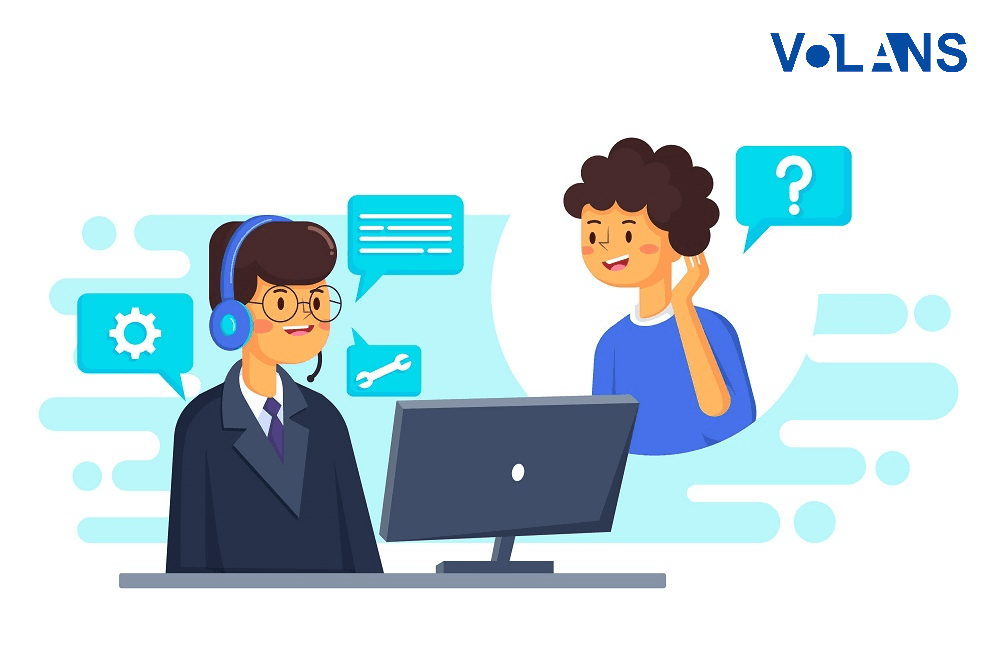In today’s highly competitive business landscape, providing a top-notch product is just the first step toward success. A crucial aspect that often separates industry leaders from the rest is the quality of after-sales support services they offer. After-sales support is a comprehensive package of services provided to customers once a product or service has been purchased. This critical phase of the customer journey plays a pivotal role in building brand loyalty, customer satisfaction, and maintaining long-term relationships.
One of the key elements of effective after-sales service support is prompt and efficient customer service. A responsive and accessible customer support team can make a significant difference in how customers perceive a brand. In the age of instant gratification, customers expect quick and accurate solutions to their queries or concerns. Companies that prioritize responsiveness and invest in well-trained customer service teams can turn potential challenges into opportunities to exceed customer expectations.
What is the process of after sales service followed by outsourcing agency?

The process of after-sales service followed by an outsourcing agency can vary based on the nature of the service and the industry. However, there are some common steps and practices that many outsourcing agencies adopt to ensure effective after-sales service.
- Understanding Client Requirements
- Service Level Agreement (SLA) Negotiation
- Training and Onboarding
- Implementation of Support Systems
- Customer Support Channels
- Issue Resolution
- Feedback and Improvement
- Reporting and Analytics
- Continuous Training and Development
- Adaptability and Scalability
Here is a general outline:
1. Understanding Client Requirements
The outsourcing agency begins by thoroughly understanding the client’s after-sales service requirements. This includes understanding the product or service, the target audience, and specific needs related to customer support, maintenance, or other after-sales activities.
2. Service Level Agreement (SLA) Negotiation
The outsourcing agency and the client negotiate and establish a clear Service Level Agreement (SLA). The SLA outlines the scope of services, expected response times, performance metrics, and other key parameters. This document serves as a guide for both parties throughout the engagement.
3. Training and Onboarding
If the after-sales service involves customer support or technical assistance, the outsourcing agency ensures that its staff is adequately trained on the client’s products or services. This may involve product knowledge sessions, communication training, and familiarization with troubleshooting procedures.
4. Implementation of Support Systems
The outsourcing agency sets up the necessary infrastructure, including support systems, ticketing tools, communication channels, and any other technology required for efficient after-sales service. This may involve integrating with the client’s systems or using dedicated tools for tracking and managing customer inquiries.
5. Customer Support Channels
Depending on the client’s needs, the outsourcing agency may provide support through various channels such as phone support, email, live chat, social media, or a combination of these. The goal is to ensure that customers can reach out for after sales customer care through their preferred channels.
6. Issue Resolution
The outsourcing agency handles customer inquiries, issues, or complaints according to the SLA. This may involve troubleshooting technical problems, providing information, or facilitating returns and replacements. The focus is on resolving issues promptly and effectively to enhance customer satisfaction.
7. Feedback and Improvement
Regular feedback loops are established to gather insights from customer interactions. The outsourcing agency analyzes this feedback to identify areas for improvement and makes necessary adjustments to enhance the quality of after-sales service.
8. Reporting and Analytics
The outsourcing agency provides regular reports to the client, detailing key performance indicators (KPIs) and metrics related to after-sales customer service. This transparency allows the client to assess the effectiveness of the outsourcing partnership.
9. Continuous Training and Development
To adapt to changes in products or services, the outsourcing agency invests in ongoing training and development for its staff. This ensures that the team remains knowledgeable and capable of providing excellent after-sales support.
10. Adaptability and Scalability
The outsourcing agency remains adaptable to changing customer needs and scalable to handle fluctuations in service demand. This flexibility is crucial for meeting the evolving requirements of the client.
By following these steps, outsourcing agencies aim to deliver high-quality after-sales customer service that meets or exceeds the expectations of their clients and contributes to overall customer.
How to interact with an outsourcing agency for after sales support? Describe in paragraph
Interacting with an outsourcing agency like Volans for after-sales support involves a strategic and collaborative approach to ensure effective communication and seamless operations. Begin by clearly defining your expectations and requirements, detailing the specific services you need for post-sales support. Fix the meeting with the experts of Volans and help them in understanding the thorough knowledge of your products or services, ensuring they are well-equipped to address customer inquiries and issues. Emphasize the importance of customer satisfaction and retention, encouraging the outsourcing team to adopt a customer-centric approach.
Conclusion
After-sales support services are a critical component of a successful business strategy. Companies that prioritize customer satisfaction beyond the point of sale build strong and lasting relationships with their customer base. From responsive customer service and comprehensive warranties to personalized experiences and leveraging technology, investing in outsourcing sales support service is an investment in the long-term success and reputation of a business. In a competitive marketplace where choices abound, exceptional after-sales support can be the differentiating factor that transforms satisfied customers into loyal brand advocates.
Call Now : +91989-991-2211
Contact on Whatsapp

